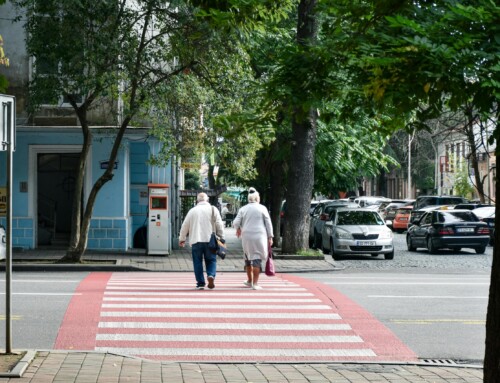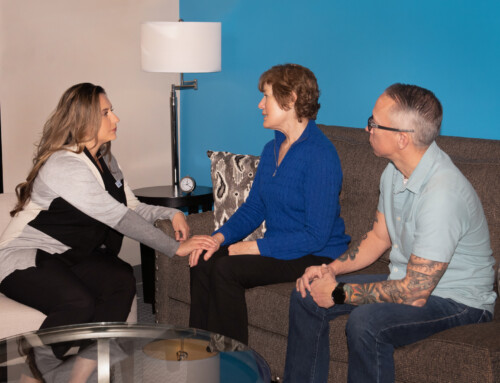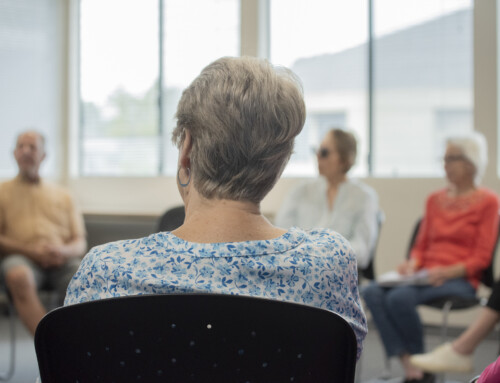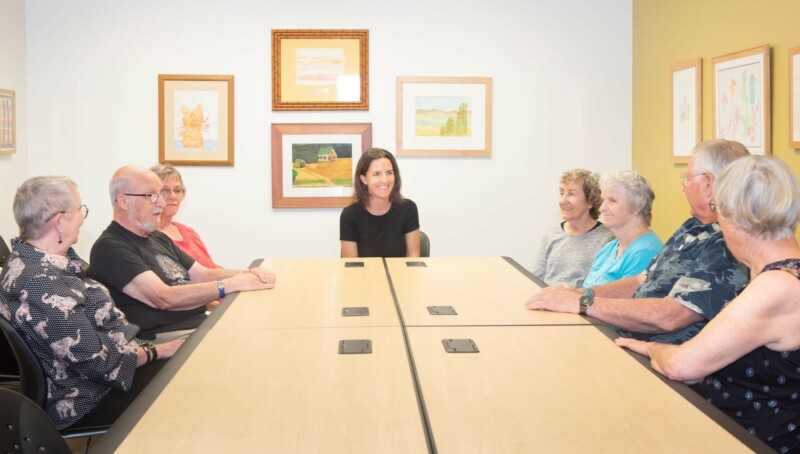
Many people become care partners out of love for the person, cultural expectations, or necessity. According to AARP and the National Alliance for Caregiving, “more than half of all family caregivers (53%) feel they have no choice in taking on the role.” Most care partners lack training to safeguard themselves and the person they care for. This month, we want to highlight the impact of their important role, and the benefits gained by participating in a support group.
Alzheimer’s San Diego is proud to offer over 30 free and confidential support groups seven days per week – in person, online, or by phone. There are various types of support groups to meet different needs.
If you are a care partner, know someone who is, or are a friend who would like to learn more, keep reading to learn more about this vital program.
Caring for someone with memory loss requires ongoing training, practice, and feedback. Caregiving efforts that work today may not work three weeks or three months from now. Dementia support groups are an excellent means of ongoing training and support with others on the same journey. Below are thoughts from care partners who are currently participating in support groups:

“When my husband was first diagnosed, I didn’t feel comfortable attending a support group. I felt others would share problems and issues that I had yet to encounter and felt I would have nothing to contribute.”
“… meeting new people and not knowing what a support group would be like.”
“… what topics would be covered, would it be confidential, and if it would potentially increase our emotional stress rather than lessen it.”

“Comforted may be a good word. That we had a connection to others who were experiencing the same traumas, uncertainties, and questions was so very helpful in feeling less alone in a rowboat on the ocean.”
“The group facilitator did a great job of easing new participants into the meeting. One way was by ensuring long term participants shared first so they can model how to participate in the sessions.”
“I felt welcomed and an immediate sense of relief, belonging and understanding from others experiencing similar challenges.”
“I had attended an ALZSD education panel discussion and heard one person encourage us to be in a support group. He said, ‘if you don’t like the first group you try, try another group. Keep trying until you find the group for you.’ It took me three attempts; the third time was definitely the charm.”
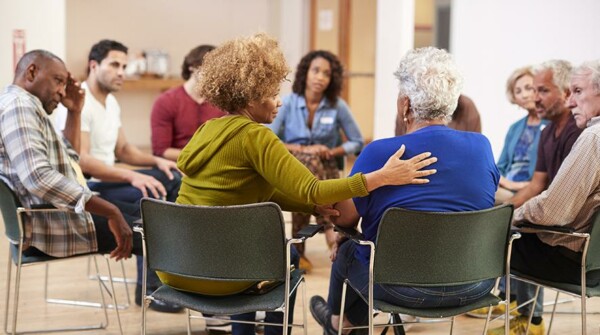

“I rely on the camaraderie of the group. We developed an understanding of friendship with one another forged by pain and anguish. When you bare your innermost feelings with a mutually affected group of people the bonds are strong.”
“I have become more comfortable sharing what is happening with my person and myself. This provides a great outlet…with a group of people who understand the issues, don’t judge, and offer support.”
“Everyone is so supportive of each other. No judgement, no censure when someone says something true about being a caregiver. People who aren’t in our shoes might be shocked at our feelings, at our exhaustion, and our confusion. But everyone in the group ‘gets’ each other and provides normalization and support.”
“My experiences either in person or via Zoom have been only positive. I now belong to 4 Zoom groups because each group focuses on a different aspect of being a caregiver.”

“I look forward to the meetings because others pass along coping tips and share life skills along the journey.”
“We all learn from each other. Yes, we have a person to direct us, but that person leads in a way that helps us in our growth also. We are still free to be individuals.”
“… the information I learn, giving me insight into what to avoid doing, and because of the emotional and personal support I receive as well.”
“The people in my group have held me up during difficult times, offered wonderful, useful advice, allowed me to share my thoughts and feelings without judging or criticizing me.”


“Friendship, socialization, support, and often very helpful suggestions and information from those that have preceded me down this path.”
“An enormous amount of care, concern, support, and love. And I have received a great deal of guidance-both in positive recommendations and negative as far as warnings of inadequate or unconstructive steps.”
“This group helps us identify our limitations as caregivers, who want to do everything for our ‘person,’ and at what point are we compromising our mental, emotional, and physical health.”
“I have received a lot of advice and just support, especially when I am feeling angry, depressed, or frustrated.”

“Anyone who opens their heart to have help. Come in quietly if you want, but you can find no pressure and only acceptance. Those present know what you are experiencing.”
“Those living with dementia benefit from what caregivers learn through support groups.”
As you can see, there are many different thought processes and feelings care partners go through before joining and during their support group journey. If you are considering joining a care partner support group and would like more information, give us a call at 858.492.4400 and speak to one of our Clinical Care Coaches. They look forward to answering your questions and supporting you. You may also see our NEW support group page for our full directory. ⬇️
By Marci Martin & Braulio Ambriz


